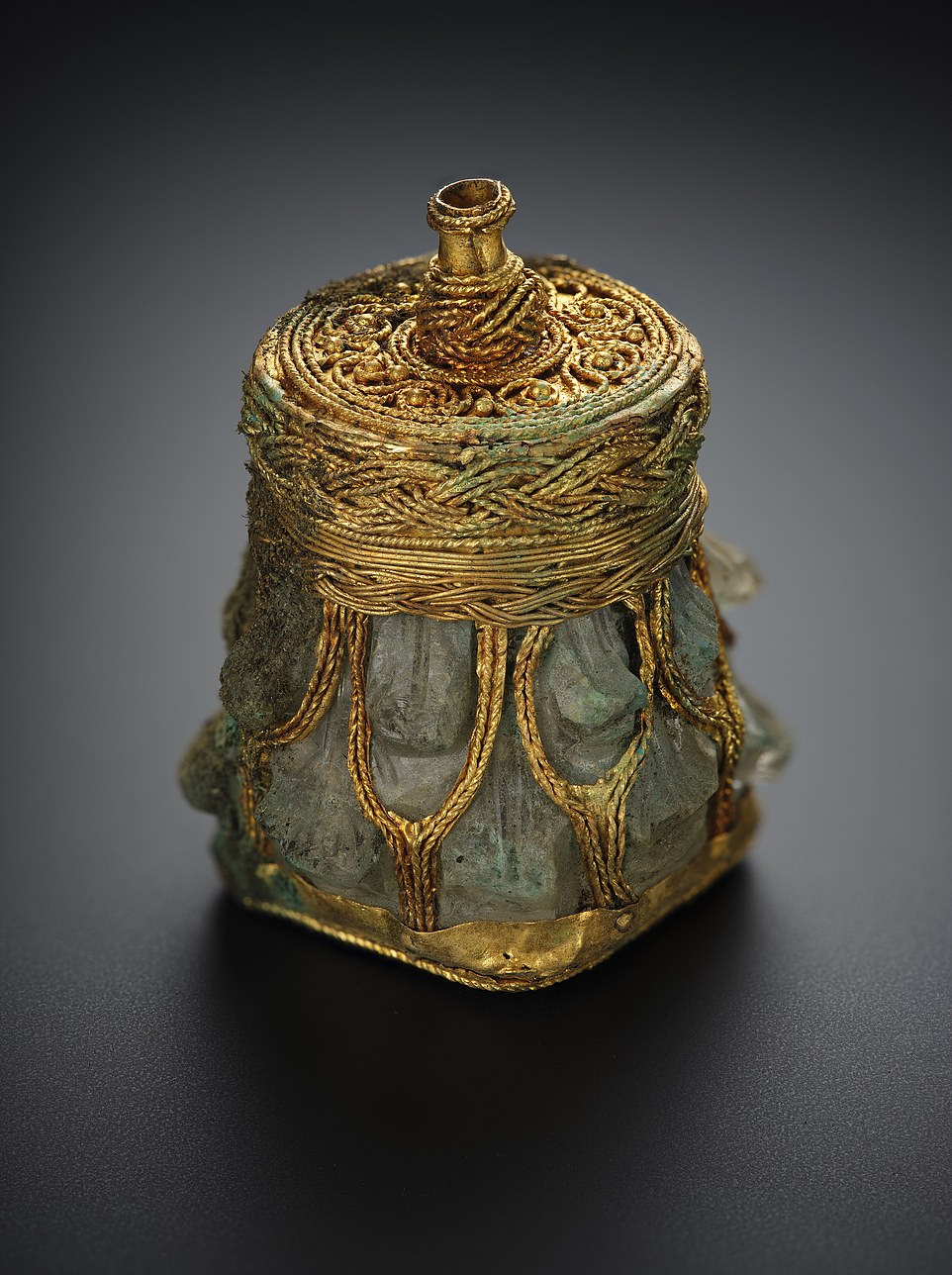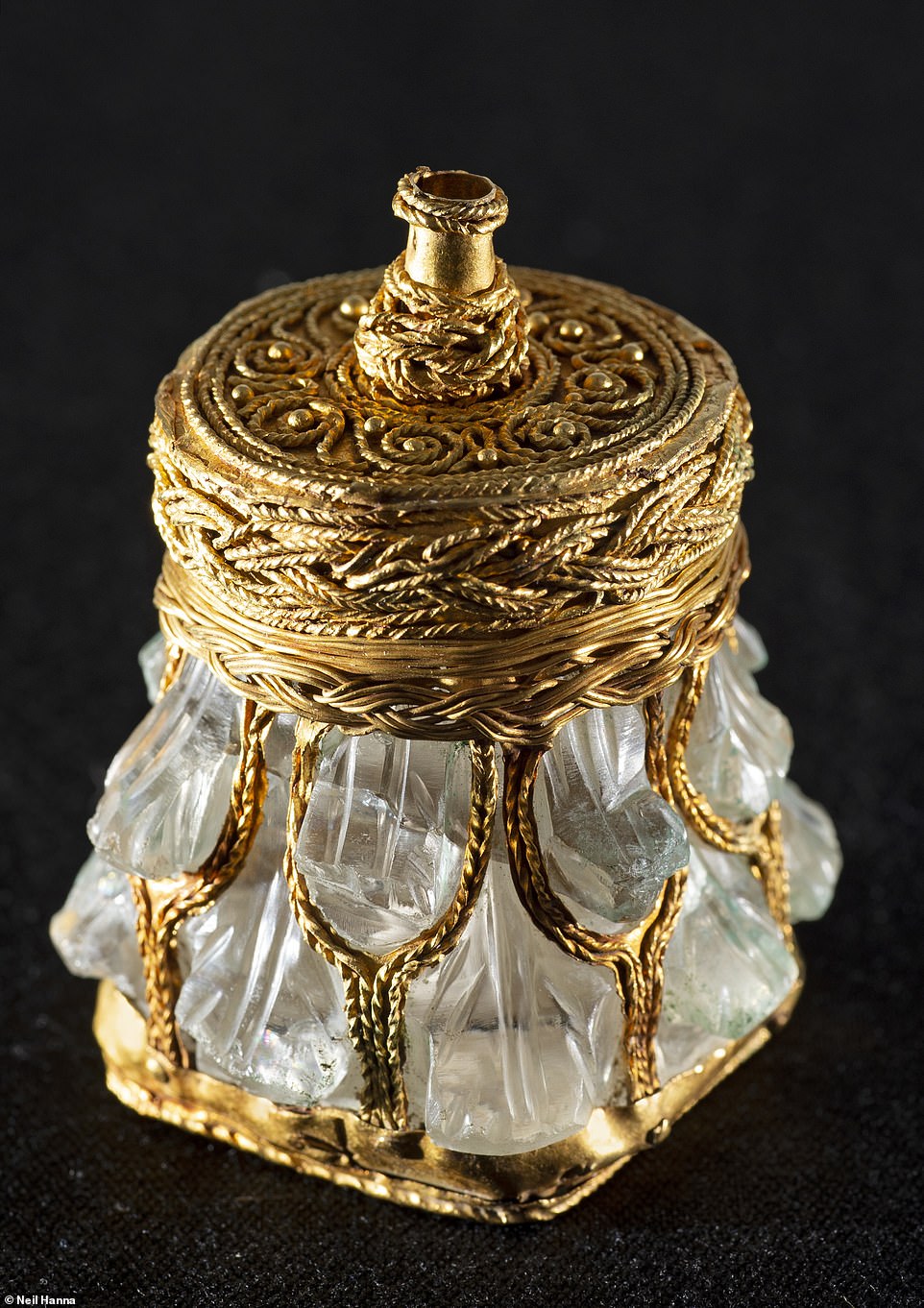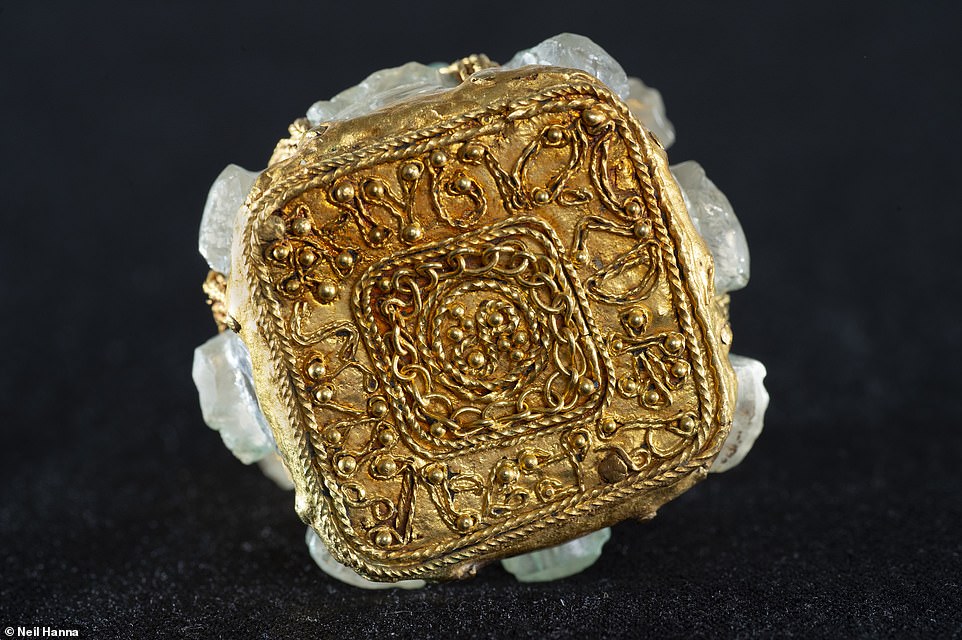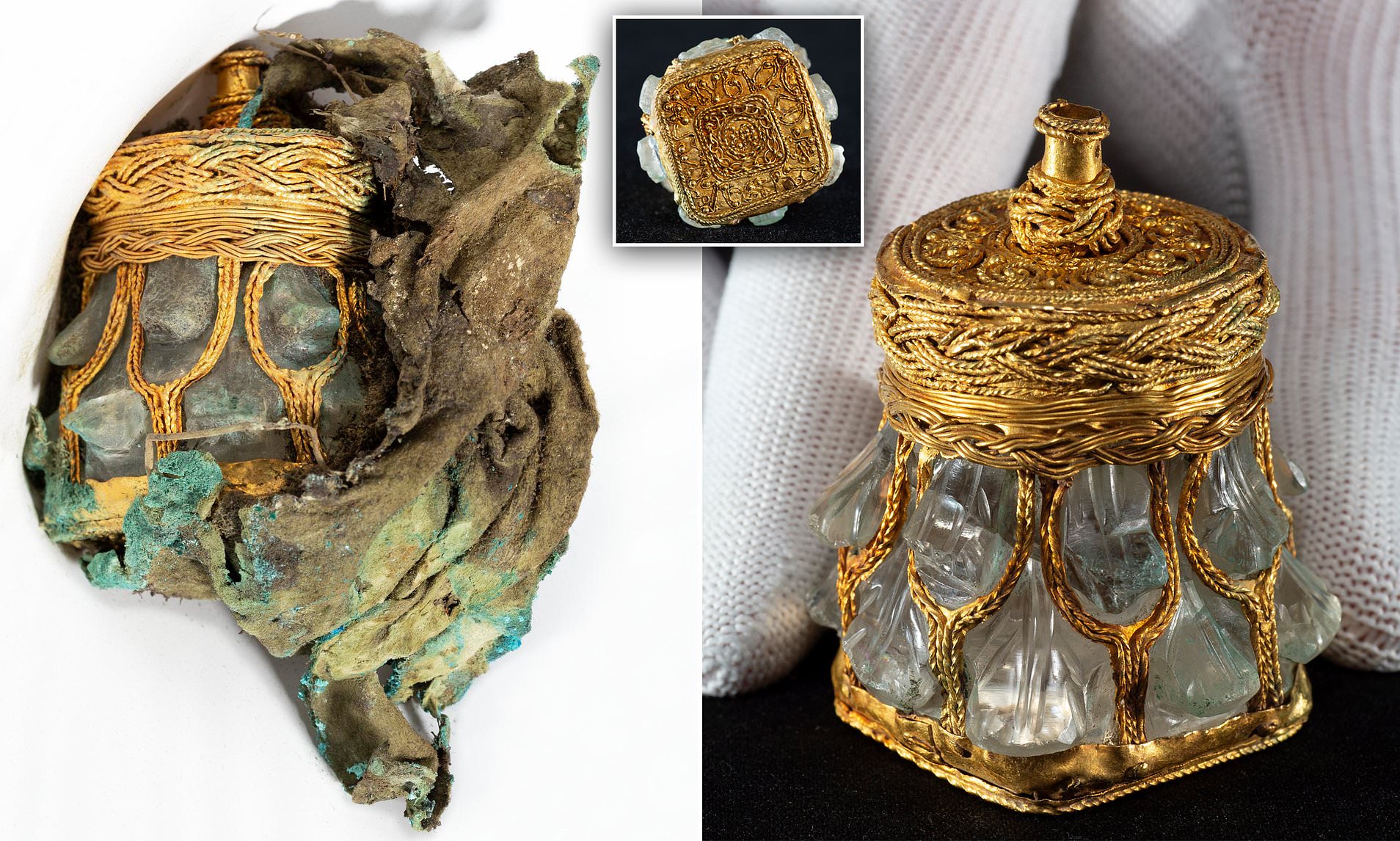Introduction
Discovered as part of the extraordinary Galloway Hoard in 2014, the Roman rock crystal jar is a breathtaking relic from the Viking era, offering valuable insights into the intricate web of cultural exchange during early medieval Europe. Unearthed in a ploughed field in western Scotland, this artifact has captured the imagination of historians and archaeologists alike, shedding light on the interconnectedness of ancient civilizations.

The Galloway Hoard: Context and Significance
The Galloway Hoard is one of the most significant Viking treasure troves ever found. It consisted of a vast array of objects from different regions, including Ireland, Scandinavia, and even the Byzantine Empire. The discovery of the Roman rock crystal jar within this hoard emphasizes the far-reaching trade networks and conquests of the Viking Age. This hoard, like many others, offers a snapshot of the Vikings’ ability to acquire precious items either through trade or raids, and the inclusion of Roman artifacts highlights their appreciation for rare and exotic objects.
The Roman Rock Crystal Jar: A Masterpiece of Craftsmanship
The Roman rock crystal jar is a tiny yet stunning artifact, measuring just 5 cm (2 inches) in height. What sets this object apart is the delicate gold thread that wraps around the crystal, indicative of master artisanship from the late eighth or early ninth century. This intricate wrapping, along with the jar’s flawless design, points to the high status of its owner. Such objects were likely symbols of wealth and prestige among the Viking elite, representing their access to luxuries from distant lands.

The jar’s Roman origins are particularly intriguing, suggesting that it may have been acquired during Viking raids or through trade with the Mediterranean world. Its presence in the Viking hoard underscores the complex relationships between northern Europe and the rest of the ancient world, where such rare treasures were highly valued.
A Vessel for Perfume, Potions, or Rituals?
Scholars hypothesize that the jar may have served as a container for perfume, precious oils, or a valuable potion. This theory aligns with its Roman craftsmanship, as perfume containers were often highly decorated and used in both personal and religious contexts. Additionally, the Vikings were known to participate in rituals involving oils and perfumes, particularly during royal anointing ceremonies or sacred rites.

Its careful placement inside a silk-lined leather pouch further underscores the jar’s importance. The preservation of such an object indicates its symbolic value within Viking society, potentially being seen as more than just a luxury item but as a tool for religious or ceremonial purposes. Its ritualistic significance enhances the mystique surrounding this artifact, offering a deeper understanding of Viking spiritual practices and their connection to the material world.
Cultural Connections and the Viking Age
The presence of a Roman artifact within a Viking treasure hoard illustrates the cultural connections between these ancient societies. The Vikings were not merely raiders; they were also skilled traders and navigators who traveled vast distances to obtain goods from across Europe, the Middle East, and beyond. The Galloway Hoard itself contained a variety of objects, including Byzantine silk, silverware from Ireland, and Scandinavian weapons. These diverse artifacts demonstrate the Vikings’ extensive trading networks and the importance they placed on acquiring exotic treasures from far-flung regions.

The rock crystal jar stands as a symbol of the artistry and wealth of Viking elites, but more importantly, it reflects their deep ties to other cultures. As part of the Galloway Hoard, this jar tells a story not only of Viking conquests but also of their engagement with the wider world, exchanging ideas, goods, and craftsmanship.
Conclusion
Today, this exquisitely restored Roman rock crystal jar offers historians and archaeologists a tangible link to the vibrant exchanges between ancient civilizations. It stands as a testament to the interconnectedness of early medieval Europe, illustrating how the Vikings, through both trade and raids, brought together the cultural legacies of far-reaching lands. As part of the Galloway Hoard, the jar continues to fascinate, providing a glimpse into the vast networks of influence that shaped the Viking Age and beyond. Its small size belies its grand historical significance, marking it as one of the most remarkable treasures unearthed in recent times.

